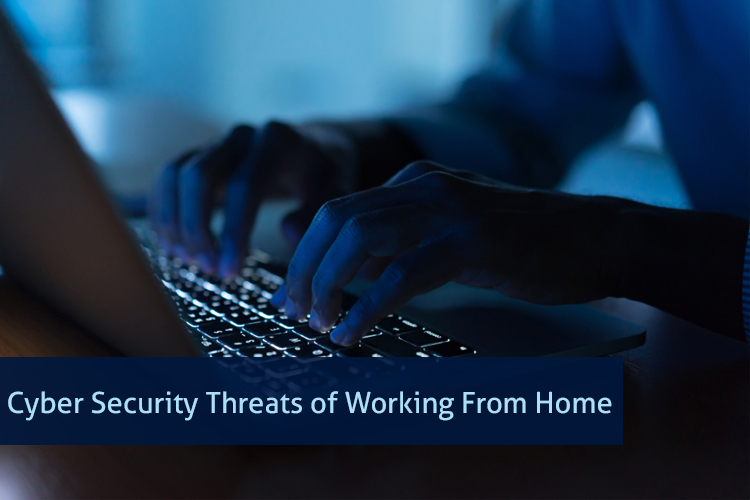4 Cyber Security Threats You can Face While Working from Home

As social distancing is getting vital for the survival of human beings, working from home is one of our best safety measures. Now our houses have converted into full-fledged offices to carry out the necessary tasks. In an urge to keep the work effective, workers are trying new systems and following the security policies to keep the business safe.
However, while working from home, users are accessing home ISPs along with unmanaged and unsecured routers. Home networks are generally unencrypted, and thus they are prone to severe cyberattacks risk. It is also obvious that the same network is also used by your family members, such as your children, partner, and other.
The terror of internet crime is rapidly increasing, especially to home networks that are even more prone to potential threats. Online attackers are nowadays using modern ways to break into people’s devices remotely via developing infected mails, websites, and software. If you are still relying on traditional security measures, then you are likely to be exposed to the security risks.
Now you need to refine your home internet security in order to carry on your work from home safely. You need to learn the most common cybersecurity risks while working from home. Let’s learn each potential danger one by one in detail.
- Cyber Attackers Can Control VPN
VPN, aka Virtual Private Network, is considered one of the most impressive ways to enhance cybersecurity, however, it is now possible for attackers to manipulate it. This happens because your computer is likely to be already captured with viruses and compromised hardware. It can provide an opportunity for attackers to bypass your VPN encryption and access your system data.
To counter these cyber attacks, you can talk to your software or hardware providers to optimize the policies and configurations. First of all, make sure your VPN is optimized to do this talk to your VPN provider. Also, make sure to scan your operating device for security measures and see if there are any viruses.
- First Secure Endpoint, then Phone
Cyber attackers love to target people’s personal endpoint devices such as their desktops, Mac, laptops, and even smartphones because they know some employees use their personal devices for carrying out official projects. This helps them remotely access your sensitive files and data that can be utilized for further security breaching.
To prevent this, make sure that the crucial project processes recover on your work from home system. You should also make sure that you bring a new enterprise footprint to the fold via policy and manipulate perspective. Once that is done, you can target your mobile phone, which is way more common in today’s world.
When a worker needs to learn to access new devices and programs, they are likely to switch to their mobiles as they are more skilled in using their smartphones. Many companies have created strict policies for limiting the usage of smartphone for their official projects for their employees that do work from home. By doing so, you can also enhance your company’s sensitive and crucial data since mobile is not that secure at all.
If you are an employer or a company manager, then make some strict rules for employees to ensure top-notch endpoint security.
- Fake or Clone Malicious Applications
Nowadays, internet attackers have found a new strategy of stealing sensitive information from users. They have successfully created several major apps that are a cloned version of popular apps. For instance, a few days back, some attackers developed a full-fledge WHO app that includes several hidden immoral programs to steal critical information from users such as banking information.
Many users can easily mistake these malicious cloned apps for the official ones. To prevent this, you should never download or install apps outside the official or unauthenticated app store provided in your devices. Never download apps from third-party websites or unofficial sources in order to stay safe.
- Your Physical Location
When an employee brings official devices at home or utilizes their personal belongings for work, they reside in an environment, unlike the office. This creates interactions with new routers, foreign devices, printers, gaming consoles, and other different home devices between the computers used for office work. This increases potential unknown and unpredictable cybersecurity risks. To prevent this, use your computer with a dedicated network such as your cellular data rather than a shared home network.
